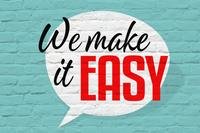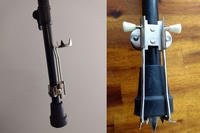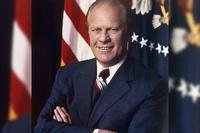"Interviewing is an art," said Jennifer Scott, manager of recruitment at Petro, the nation's largest home heating oil service and delivery company, based in Stamford, Connecticut. Scott has been working in recruitment since 1992 and has some strong opinions about what makes for a good interview -- or a bad one.
"I had a candidate show up in a sundress and Birkenstocks for an interview, and I almost died," she said. "You know this person is not someone you're going to hire. It pretty much doesn't matter how good they are. How do you show up to an interview at a corporate office in a sundress and Birkenstocks? I don't get it."
Regarding dress code, Scott simply suggests: "It's an interview. Always wear a suit."
You Have Five Minutes
What you're wearing impacts your first impression, which is the crux of the entire interview. "I guess the rule of recruiting is that a decision is made [by the recruiter or hiring manager] in the first five minutes, and you spend the next half-hour trying to defend that decision," Scott said. "That's why first impressions -- being on time, being dressed appropriately and being prepared -- are critical. If I don't like you off the bat, it's going to be a lot harder trying to convince me to hire you. If I think you're great off the bat, you're working a lot less towards trying to convince me to change my mind."
While some job seekers bemoan that hiring decisions can be heavily influenced within a few minutes of meeting someone, Scott defends it: "No matter how hard you try to be completely impartial -- because you want the best-qualified person for the position -- the reality is that 80% of the hire is based on personality and 20% is based on skills. As long as you meet the basic requirements -- and if you don't, you wouldn't have gotten in for the interview -- it's much easier to teach someone specific skills than how to get along with people or how to make a good impression. That's just reality. That being said, it's very typical for a recruiter or hiring manager to make a decision based on first impressions."
Scott also cautions that while you should be relaxed during the interview process, you need to be at your best at all times.
"Everything for me in the interview process is a test," she said. "What time you show up, how completely and neatly you fill out the application, the pace at which you walk in front of me or behind me on the way to the interview room from the lobby, your being observant if there's something to observe, your personality during the interview, your flexibility if someone can't meet you exactly at the time they were supposed to, your handshake, your appearance. Everything is a test."
Good and Bad Practices
So what makes a good impression on a wily recruiter like Scott?
"Someone who's well-prepared all around," she said. "They've dressed appropriately for the interview. They arrived on time or even a few minutes early. They've done some research on the company, and they have a list of questions they want to ask. They understand why they're here. They're articulate and prepared in general."
And besides a sundress and Birkenstocks, what can kill an interview before it gets started? "The worst mistake someone can make for an interview is being late," Scott said. "Honestly, I don't care what the traffic was. There's absolutely no excuse for that -- ever. I will frequently just not interview someone who is late."
Want to Know More About the Military?
Be sure to get the latest news about the U.S. military, as well as critical info about how to join and all the benefits of service. Subscribe to Military.com and receive customized updates delivered straight to your inbox.











